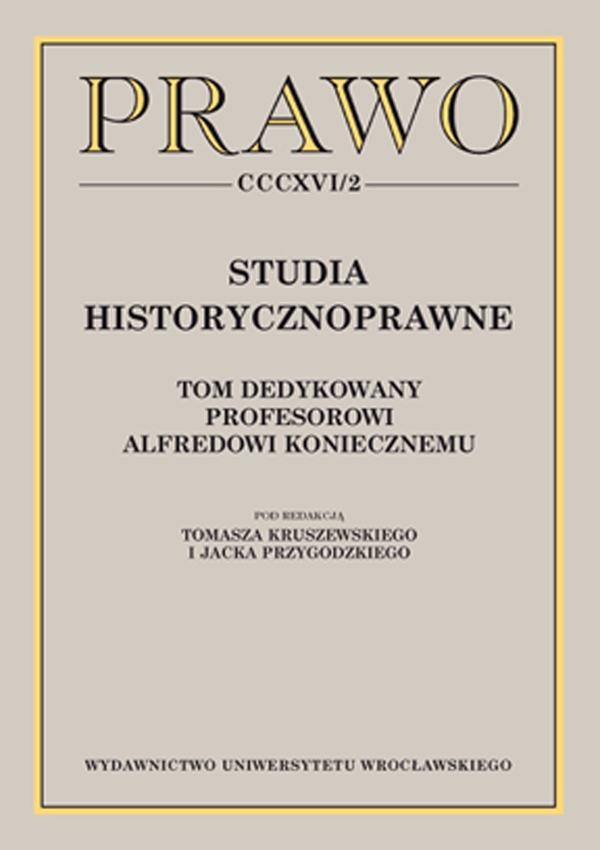

Artykuły

Adoption in the Code of Gortyn
The article is devoted to regulations concerning adoption, written in the so-called Code of Gortyn, founded in the first half of the 5th century BC. First, the author made a translation of a fragment of the Code which contained provisions relating to adoption. Then, he discussed the terminology for the institution and the qualifications the adopters and adoptees needed to meet. The rest of the article deals with the form of adoption, the legal consequences of this act, cancellation of the act and the confirmation of property rights acquired by the adoptee prior to the announcement of the Code. Wherever possible, the author showed differences and similarities between the Code of Gortyn and Athenian regulations. In the conclusion, he stressed that the position of an adopted son was not as strong as the position of the sons born in wedlock. He was not, in contrast to the former, made heir to his parents’ properties. He also did not have as strong a position as an adopted son in Athens. Athenian law did not diversify the situation of children born in wedlock gnesioi and those adopted. They both inherited the same part of the property. In Gortyn the adoptee who had adoptive brothers and sisters inherited equally with the latter, hence half of the property was inherited by a legitimate son.
Adoption nach dem Gesetzeskodex von Gortyn
Der Beitrag ist den Regelungen betreffend die Adoption gewidmet, die in dem in der 1. Hälfte des 5. Jh. v. Ch. entstandenen sog. Gesetzeskodex von Gortyn enthalten sind. In der Einführung hat der Verfasser einen Teil des Kodexes mit Vorschriften über die Adoption übersetzt. Dann bespricht er die diese Institution betreffende Terminologie und Voraussetzungen, die durch den Adoptierenden und Adoptierten zu erfüllen waren. Ferner befasst er sich mit der Form der Adoption, ihren Rechtsfolgen, dem Widerruf dieses Rechtsgeschäftes und der Bestätigung der Vermögensrechte, die die Adoptierten vor der Einführung des Kodexes erworben haben. Dort, wo es möglich war, wurden Differenzen und Ähnlichkeiten zwischen den gortynischen und athenischen Regelungen bündig genannt. In den Schlussfolgerungen hat der Verfasser betont, dass die Position eines adoptierten Sohnes nicht so stark war, wie die der ehelichen Söhne. Im Gegensatz zu den Zweiten war der Adoptierte kein heres necessarius. Er hatte auch nicht die Position, der sich die Adoptierten in Athen erfreuten. Das athenische Recht unterschied nämlich zwischen den ehelichen gnesioi und Adoptivsöhnen nicht. Sowohl die einen als auch die anderen erbten den gleichen Teil des Vermögens. In Gortyn erbte der Adoptierte, der Halbbrüder und Halbschwestern hatte, wie die Letzten, und zwar den halben Sohnesanteil.